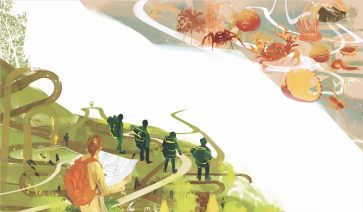Theme: Science, Faith and Hope for the Future
Dates: 4pm Sunday 2nd July – 1pm Friday 7th July, 2023
Venue: Lucy Cavendish College, Cambridge and Online
How can we find hope in a world of where there are natural disasters and man-made suffering? What hope can science bring, and how does faith affect our perspectives on the present and the future?
These are some of the questions that will be discussed during The Faraday Institute Summer Course 2023, which brings together expert speakers providing insights from science, philosophy and faith across a range of topics spanning embryology to psychology and nanotechnology to neuroscience.
This course is aimed at students or university graduates from any background. No formal training in science, philosophy or theology is assumed. Although many of the speakers have a personal Christian faith, or may follow another religion, the talks are intended for those of all faiths or none.
The course will be hosted in Lucy Cavendish College at the University of Cambridge, a short walk from the heart of historic Cambridge and the river Cam. Online participation, live streaming and catchup viewing will also be made available to support delegates in different timezones.
Schedule: A provisional schedule outline is available here. A list of confirmed speakers with talk summaries is provided below.

Illustrations from the Wonders of the Living World Project, Danny Allison, © Lion Hudson IP Limited, www.wondersofthelivingworld.org
Speakers
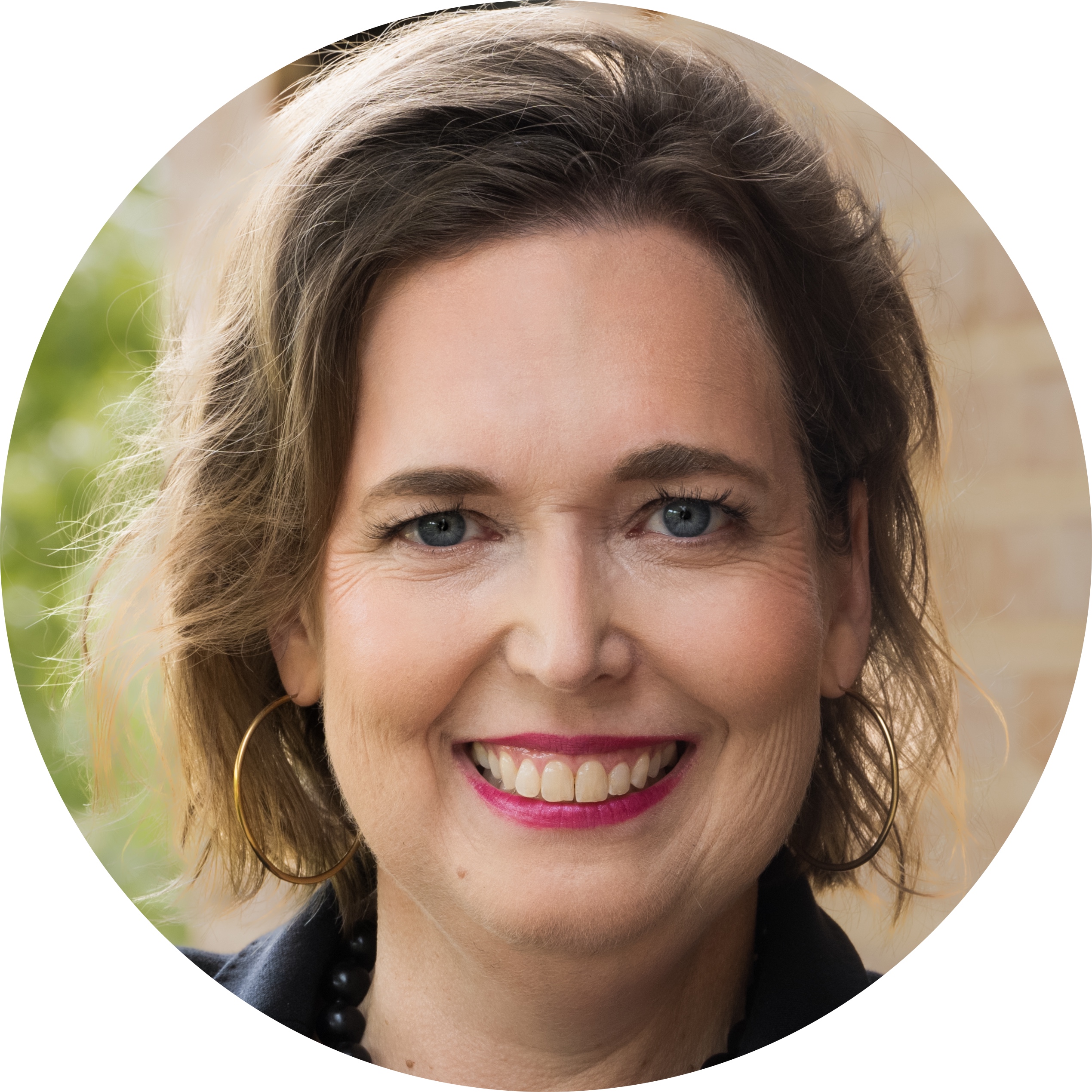 Keynote Speaker: Prof. Elaine Howard Ecklund – Why Scientific and Religious Communities Need Each Other: Hope for Ways Forward
Keynote Speaker: Prof. Elaine Howard Ecklund – Why Scientific and Religious Communities Need Each Other: Hope for Ways Forward
Based on twenty years of data collection, sociologist Elaine Howard Ecklund, argues for shared values between religious and scientific communities and examines how these shared values provide hope for better interactions between religious and scientific communities, interactions that will build common ground for the common good.
Prof. Elaine Howard Ecklund – How Religious Communities Can Better Interact with Atheist Scientists
In this lecture, Elaine Howard Ecklund will present core findings from a survey of over 1,200 atheist scientists in the US and the UK and 81 in-depth interviews. She will explore what everyday atheist scientists think about religion and the limits to what science can explain, atheist scientists’ views on meaning and morality, pathways that led to atheism in science, and more.
Dr Denis Alexander – Coming to Faith Through Dawkins
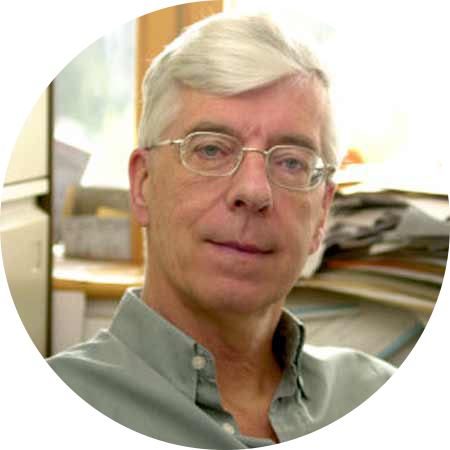
One consequence of the cultural movement that came to be called ‘New Atheism’ is that it stimulated people to think about questions of science and of faith. As a consequence, some from atheist/agnostic backgrounds came to believe in God and became Christians. Twelve of these accounts, written by people from five different countries, have been collected into a book co-edited with Alister McGrath (due for publication by Kregel in August 2023). This talk will provide an overview of the various ways in which this happened, using these accounts to reflect on some of the topics highlighted in this Summer Course.
Prof. Russell Cowburn – Nanotechnology – A Disaster Averted

Nanotechnology is the science and engineering of the atomic scale. New products from microchips to sunscreen have been developed using the new techniques brought by nanotechnology. But it has not been without its critics. This talk will give an introduction to exactly what nanotechnology is, what it can be used for and explain why people raised ethical and safety concerns. Many of the disaster scenarios predicted for nanotechnology over the last 20 years have not come to fruition. The speaker will discuss why this is and suggest some lessons learned for Artificial Intelligence.
Prof. Rana Dajani – Science in the Arab World: A New Yet Ancient Framework for a Better More Inclusive Science for the Future of Humanity

The state of the world today on the history and origins of science is biased therefore there is a need to enlighten, learn and decolonise origins of science. This is not only an ethical obligation, but it is also the way we can bring forward multiple perspectives to address the challenges we face in the 21st century to build a better future for humanity. The contribution of the Islamic civilization to the scientific body of knowledge, experience and expertise is instrumental to the world we exist in today, from algorithms, the basis of the Internet & AI, to medicine, physics and astronomy. The question that presents itself with such a history is why today we hear that there is a controversy between Science and Islam? This session will discuss the reasons and focus on one example that captures the controversy which is biological evolution. The speaker will end with a call for a revolution drawing from the past and moving towards the future, not only for the apparent contradiction to be resolved, but for the betterment of humanity.
Dr Sharon Dirckx – Neuroscience & Religion: What Does it Mean to be Human in an Age of Brain Mapping and Neural Correlates?
 Advances in neuroscience have accelerated over the last few decades such that the neural correlates and networks relating to various kinds of cognition, emotion and behaviour have been identified in the human brain. Our understanding of underlying physical processes has grown tremendously. Some scientists and philosophers, however, have taken this as evidence that people are determined and driven entirely by their brains. Is this true? If true, what does this mean for human identity? Are those with a fully functioning brain somehow more significant than those without? Is religious belief merely brain activity and no more? Will AI eventually enable conscious androids to be walking our streets? This session will look at the question of neuroscience and human identity, and its implications for the present and the future.
Advances in neuroscience have accelerated over the last few decades such that the neural correlates and networks relating to various kinds of cognition, emotion and behaviour have been identified in the human brain. Our understanding of underlying physical processes has grown tremendously. Some scientists and philosophers, however, have taken this as evidence that people are determined and driven entirely by their brains. Is this true? If true, what does this mean for human identity? Are those with a fully functioning brain somehow more significant than those without? Is religious belief merely brain activity and no more? Will AI eventually enable conscious androids to be walking our streets? This session will look at the question of neuroscience and human identity, and its implications for the present and the future.
Prof. Keith Fox – Promises and Challenges of Human Genome Editing
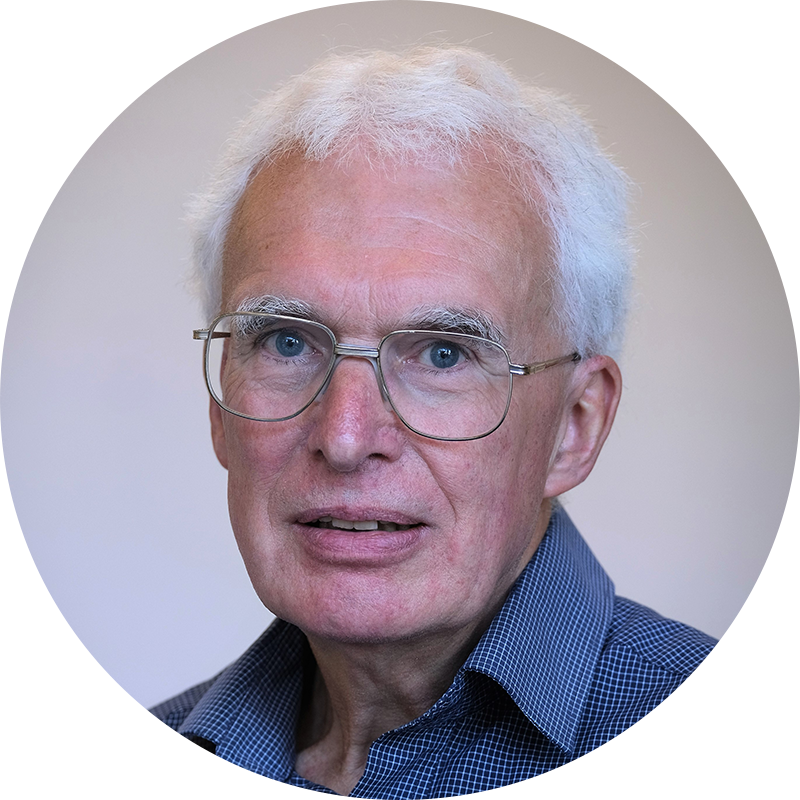 Recent advances now enable us to manipulate (edit) our genomes with potential for curing or preventing some genetic diseases and even enhancing human capabilities. This may seem like an exciting prospect, but it raises questions about what is ‘normal’, what it means to be human, and how we respond to those who have disabilities. Is this a form of embryo healing, a part of the God-given arsenal of techniques for alleviating human suffering or is it ‘playing God’ or the ‘slippery slope’ to the production of “designer babies”? Which genes (if any) should we allow to be modified? Those that are life-threatening, or life changing? What are the boundaries between normal variation and disability? Will we be discriminating against those who live with genetically inherited conditions, and what does this say about their dignity and worth?
Recent advances now enable us to manipulate (edit) our genomes with potential for curing or preventing some genetic diseases and even enhancing human capabilities. This may seem like an exciting prospect, but it raises questions about what is ‘normal’, what it means to be human, and how we respond to those who have disabilities. Is this a form of embryo healing, a part of the God-given arsenal of techniques for alleviating human suffering or is it ‘playing God’ or the ‘slippery slope’ to the production of “designer babies”? Which genes (if any) should we allow to be modified? Those that are life-threatening, or life changing? What are the boundaries between normal variation and disability? Will we be discriminating against those who live with genetically inherited conditions, and what does this say about their dignity and worth?
Revd Dr Katy Hinman – Consider the Lilies of the Field: Pollination Ecology and Theology
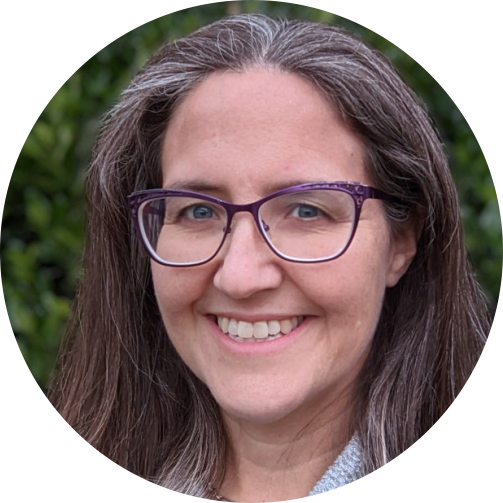 Much is made of the antagonistic relationships in the natural world – after all, it is “Nature, red in tooth and claw.” However, ecosystems are also dependent upon mutualisms, often between unexpected partners. In particular, plant-pollinator relationships are not only foundational for natural systems, but can also illuminate new ways of thinking about human systems. This session will explore lessons learned from pollination ecology and how we might apply them to our understanding of science and religion.
Much is made of the antagonistic relationships in the natural world – after all, it is “Nature, red in tooth and claw.” However, ecosystems are also dependent upon mutualisms, often between unexpected partners. In particular, plant-pollinator relationships are not only foundational for natural systems, but can also illuminate new ways of thinking about human systems. This session will explore lessons learned from pollination ecology and how we might apply them to our understanding of science and religion.
Prof. Jeff Hardin – Wonderfully Made: Embryos, the Future, and Christian Belief

The transformation of each of us from a fertilised egg to an organism with trillions of cells arranged in incredibly complicated ways is a wonder of biology. Each person is truly a “self-made” individual, as the future-directed programme of development unfolds from humble beginnings. This programme involves the expression of genes, but also form-shaping movements carried out on a massive scale with intricate choreography. The intricacies of this cellular world provide opportunities of profound beauty and wonder, but also raise larger questions about our identity. How should we think about our tiny beginnings? Is size tied to significance? And how should we think about humans’ increasing ability to manipulate and mimic the processes of early embryonic development? Christian theism helps us to situate embryos – and ourselves – within a sweeping vision of the future.
Revd Dr Jonathan Jong – Is Religion in Decline? Secularization Meets Cognitive and Evolutionary Psychology

The secularization hypothesis has waxed and waned in popularity among social scientists across the decades. For much of the 20th century, it was regarded as dogma; then in the late 1990s it was declared dead; but more recently, there have been signs of its resurrection. This session will briefly summarise the social scientific debates within secularization theory, viewing them through the lens of recent theoretical and empirical research in the evolutionary and cognitive science of religion.
Dr Mehdi Nassaji –  The Evolving Interplay of Islam and Psychology
The Evolving Interplay of Islam and Psychology
Traditionally, individuals seeking guidance for their mental health concerns in Muslim societies would turn to Imams and Muslim clerics as their primary sources of support. However, the dynamics have shifted, and psychologists now assume increasingly pivotal roles in addressing mental health issues within the Muslim community. This transition has raised many live questions about the relationships between Islam and Western psychology. The dialogue between Islam and modern psychology has already commenced within the realm of psychological scholarship, encompassing a diverse range of perspectives on potential collaborations. The significance of this dialogue is acknowledged by scholars in the Western context as well as Muslim intellectuals within the field. This session aims to provide an overview of this landscape and explore potential avenues for integrating Islam and psychology in the future.
Dr Bethany Sollereder – God, Evolution and Climate Change: Theological Approaches to a World of Suffering

This talk on climate change seeks to investigate our current climate crisis in light of the long history of evolutionary change. Does considering deep time help us evaluate our place on earth differently? How does our precarious position on the point of change affect our theological appraisal of the place of humans in the world? How does the deep history of time affect how we think we should act? Most importantly: where is God in all of this? This talk will begin to unpack these questions, setting our urgent questions around politics, economics, and science within a theological framework.
Prof. John Walton – Science and Jewish Scriptures: How the Book of Job Prepares Us to Face Natural Disasters
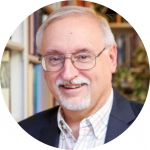
Many people expect the book of Job to offer an explanation for suffering in the world or to explain how a just God can permit cataclysmic disasters. But these are misinformed expectations. Instead, the book guides us in how to think about God when we are experiencing trials, whether personal or universal. This session will unpack the teaching of the book of Job and its poignant relevance for facing the uncertain world in which we live.
Prof. John Wyatt – Ethics in Medicine & Technology
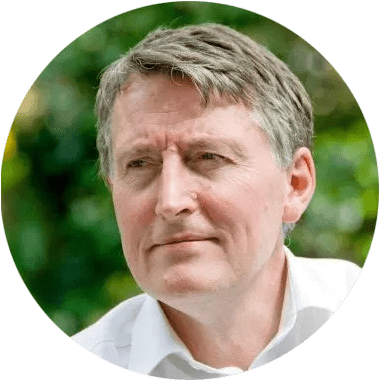
Rapid technological advances are leading to novel ethical challenges in many clinical and technological applications. Prof. Wyatt will briefly review a range of new ethical dilemmas created by advances in genomics, reproductive technology, neuroscience and neuroimaging, and artificial intelligence. How can we help to guide technological applications towards supporting human flourishing whilst protecting vulnerable people from abuse and manipulation? What is the end goal of technological progress, and what kind of a world do we wish to create for our children?
Ticket types and Costs:
In-Person Attendance:
Includes participation in the full course program plus all lunches, dinners and refreshments from 3pm on Sunday 2nd July until Friday 7th July at the course venue. An immersive experience in Cambridge with opportunity to meet other participants, speakers and Faraday Institute staff informally during meals and breaks. Places are limited to a maximum of 50 people.
Online Attendance:
Includes participation in the full course program, including live Q&A sessions and Meet the Speaker events, through Zoom webinars and meetings, as well as access to talk recordings and supplementary online materials.
Costs:
Online-only: regular ticket £150, student ticket: £75.
In-person [Non-Residential]: regular ticket £825, student ticket £525 – [initial deposit £300]
Special rate B&B single accommodation @ Lucy Cavendish College for 5 nights: £275. A booking link will be sent to all in-person ticket holders.
Notes:
For in person attendance, a deposit of £300 is required to reserve a place, with full payment due by 12th June 2023. In the case of cancellation, the maximum refund will be the difference between in-person and online attendance, and such refunds are not guaranteed. No tickets for pro rata attendance are available. Attendees remain fully responsible for their own travel, accommodation, insurance and incidental costs. We are unable to provide letters for visa purposes. For student tickets, evidence of full-time student status (undergraduate or postgraduate) will be required. Student tickets are highly subsidised and the number made available will depend on level of designated donation support received.
Time commitment and time zones
Sessions will be recorded and uploaded to the Virtual Learning Environment. These recordings will allow you to catch content you miss (e.g., because of a medical appointment or an internet connection issue), and will remain available following the end of the Summer Course.
Help Sponsor a Student
If you are able, please consider donating to support a student to attend via our ‘Support Us’ page.
Scholarships & Bursaries
A limited number of partial scholarships and bursaries may be available to allow online attendance at a reduced cost to those from low cost-of-living countries. Please visit the scholarships page to find out more.
We look forward to welcoming you in Cambridge!
How to register
To register for a place on The Faraday Summer Course 2023, choose your ticket type below and submit the registration form online.
Any questions please email: events@faraday.cam.ac.uk
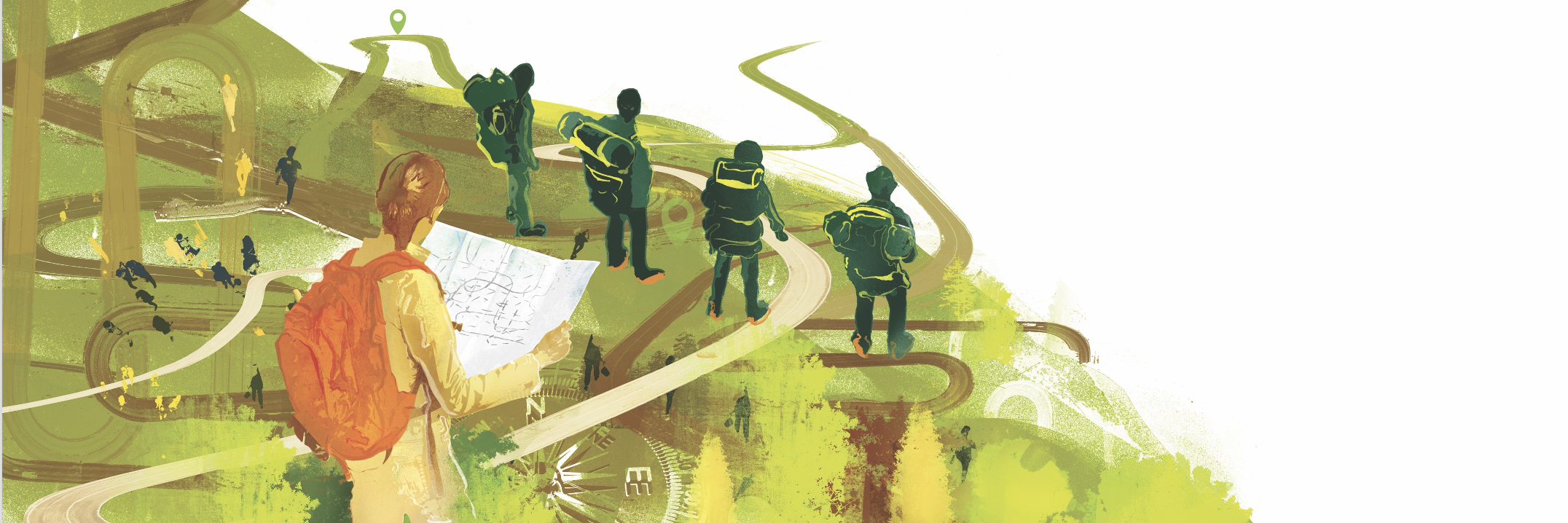
Illustrations from the Wonders of the Living World Project, Danny Allison, © Lion Hudson IP Limited, www.wondersofthelivingworld.org




